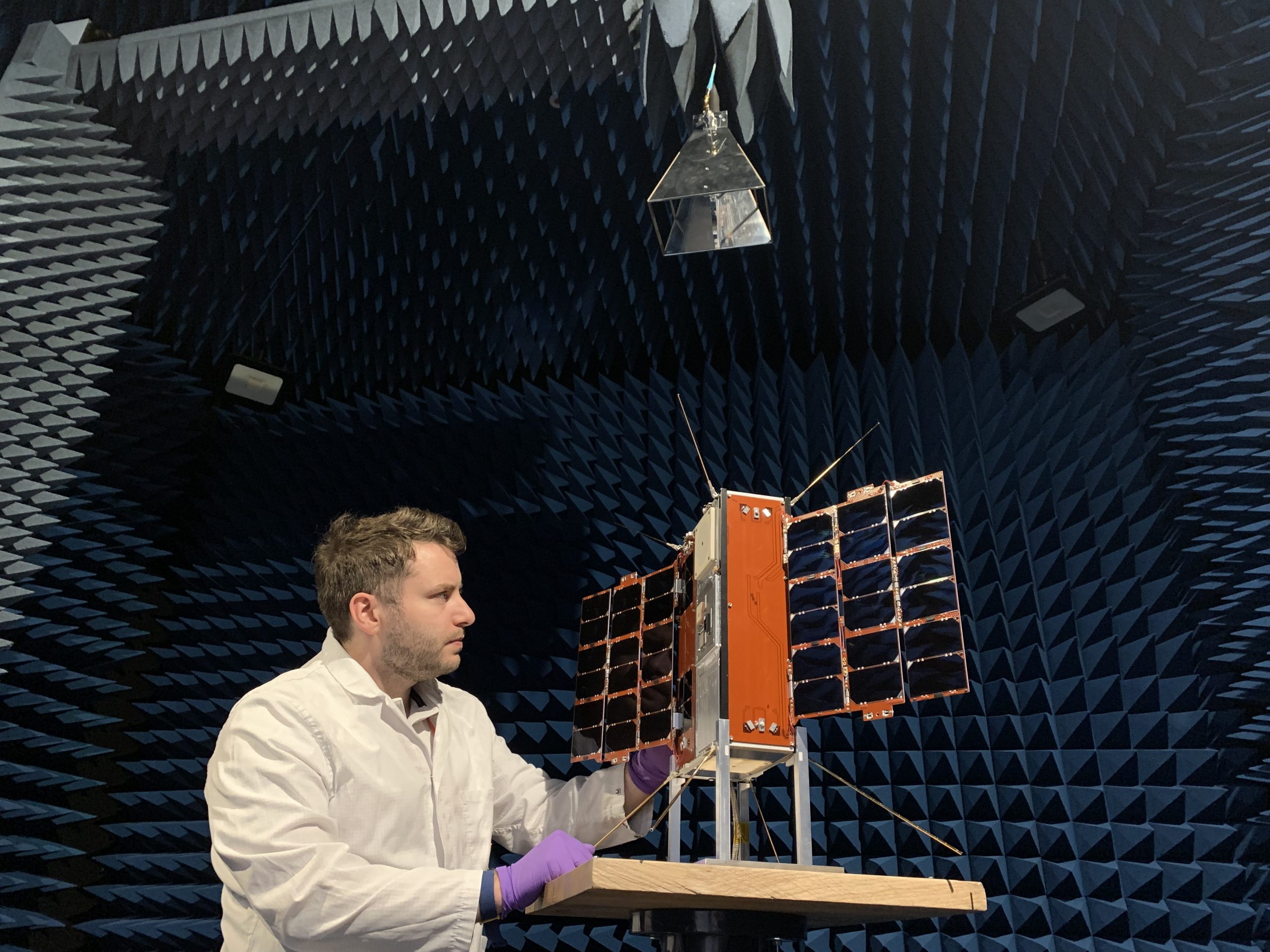
With environmental testing complete and vibration testing ongoing, the Prometheus 2 imaging and monitoring satellites are on track for their UK launch on Virgin Orbit’s Cosmic Girl from Newquay, Cornwall, later this year.
The launch will be the UK’s first ever satellite launch when Virgin Orbit’s modified Boeing 747 takes off from the runway at Spaceport Cornwall, carrying the LauncherOne rocket. Cosmic Girl will fly out over the ocean before blasting the rocket into space, delivering satellites into orbit around the Earth.
The image above shows In-Space Missions Engineer, Louis Parisi, preparing one of the Prometheus satellites for environmental testing at the Satellite Applications Catapult centre in Harwell.
The Prometheus 2 cubesats will be owned by the Defence Science and Technology Laboratory (Dstl) on behalf of the Ministry of Defence (MOD) and have been designed jointly by In-Space Missions and Airbus Defence and Space.
Test Platforms for New Technologies
The two cereal box sized Prometheus-2 cubesats have been built by In-Space Missions and will operate in low Earth orbit, at around 550km. They will provide a test platform for sophisticated imaging, and monitoring radio signals including GPS. The satellites will support MOD science and technology activities both in orbit and on the ground through the development of ground systems focussed at Dstl’s site near Portsmouth. The cubesats will each have separate equipment installed to test future concepts in support of the MOD’s ISTARI programme for future space-based intelligence and surveillance.
Incorporating modern Software Defined Radio technology, these payloads will also enable third-party organisations to use the Prometheus 2 constellation to research signal gathering, inter-satellite communication, in-orbit data processing, space domain awareness and position, navigation and timing or geolocation capabilities. Access to this research capability will be available through Airbus Defence and Space Ltd. The satellites are research demonstrators and will not be used in defence intelligence, surveillance, and reconnaissance (ISR) operations. The lessons learnt from this mission will be used to de-risk key technologies, generate the next wave of collaborative experiments, enhance international partnerships and support Dstl’s own satellite operations.
